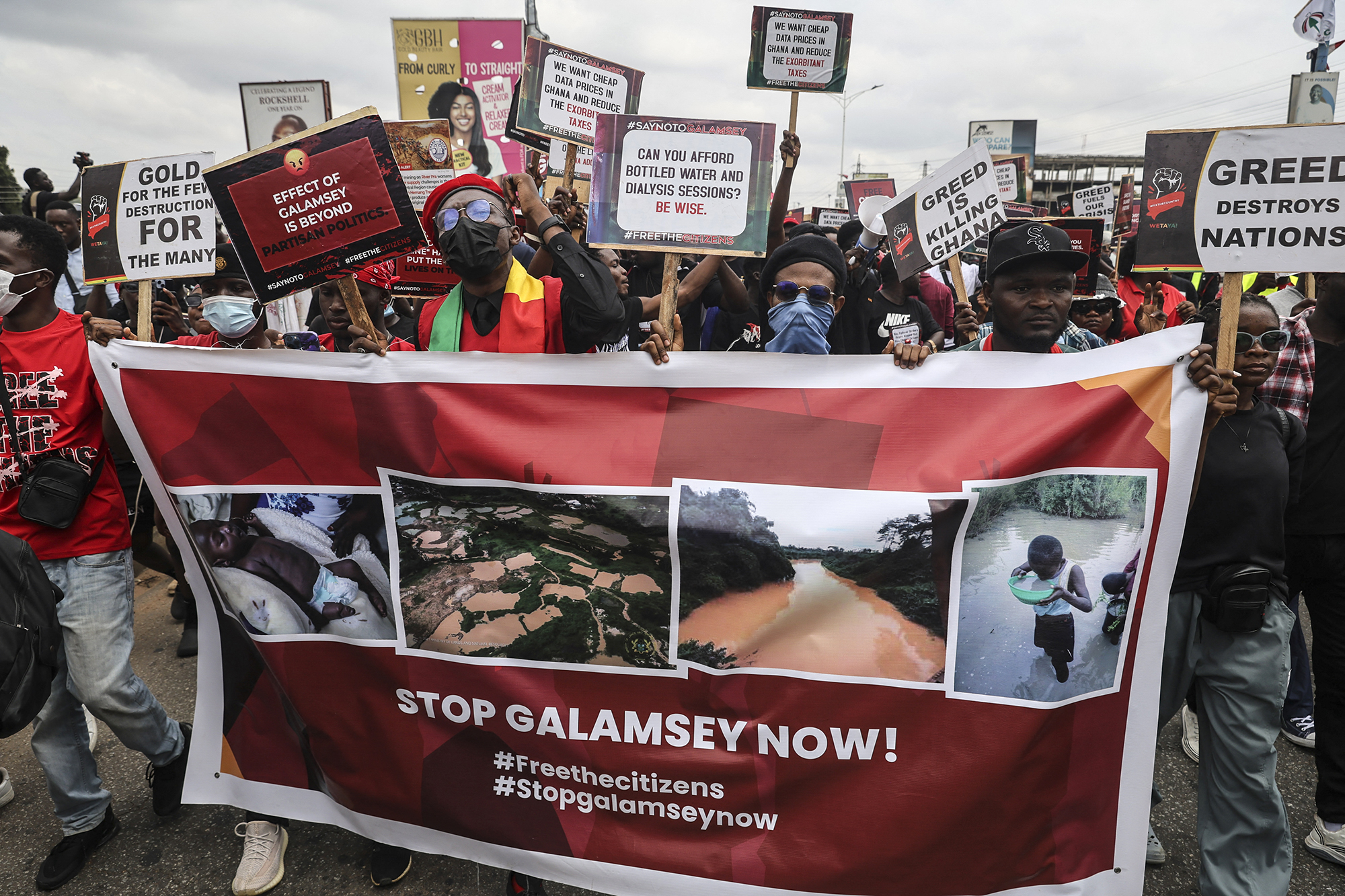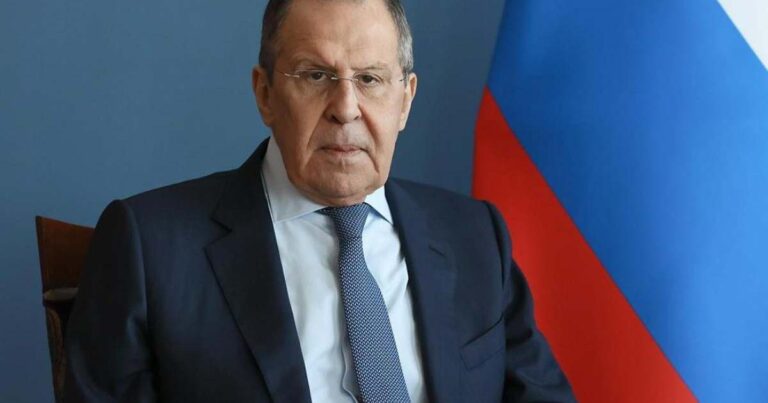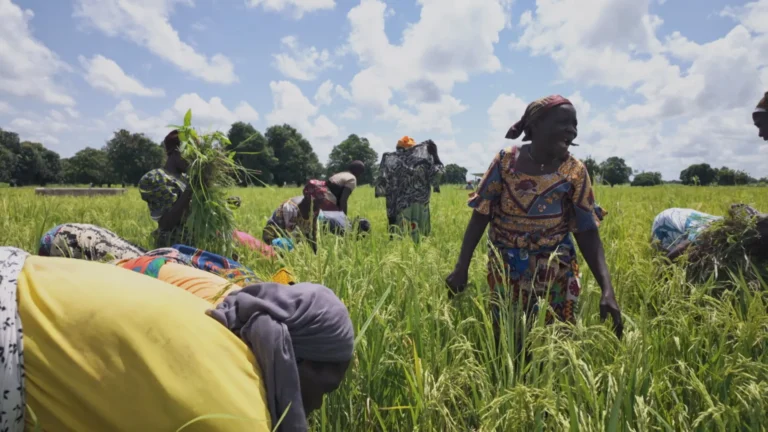
Protesters chant slogans and carry placards during a protest demanding government action on illegal gold mining and the release of activist arrested on a previous protest, in Accra on October 3, 2024. Hundreds of Ghanaians, most of them university students, protested on the streets of the capital city Accra on October 3, 2024 to demand an immediate halt to illegal mining activities, known locally as "galamsey". The demonstrators were also demanding the release of 54 anti-galamsey protesters detained last month. (Photo by Nipah Dennis / AFP) (Photo by NIPAH DENNIS/AFP via Getty Images)
A significant bust in Accra has highlighted Ghana’s ongoing efforts to tackle illegal gold trafficking, with a Moroccan woman among six people arrested for attempting to illegally buy and refine gold.
The operation, which took place on October 7, 2025, marks a crucial step in Ghana’s renewed push to combat the rampant smuggling networks that cost the nation over a billion dollars annually.
The woman, identified as 35-year-old Nina Elfseky, was apprehended in a shopping complex near the prestigious Marina Mall. Alongside Elfseky, authorities detained an American citizen and four Ghanaians.
\The group was allegedly attempting to purchase and analyze 2.1 kilograms of gold, valued at approximately $140,000 (2.2 million Ghanaian cedis), without the necessary licenses or legal permits.
The operation was the result of weeks of surveillance and intelligence gathering by the Ghana Gold Board’s (GoldBod) special squad.
Among the evidence seized was gold refining equipment in the possession of one of the suspects, Smart Philander, an American national.
Authorities believe the group intended to illegally refine the gold within Ghana, a plan that could have bypassed the country’s strict regulations on gold trade.
The arrest is part of Ghana’s broader strategy to enforce the Ghana Gold Board Act 2025, which was passed earlier this year. This law, which came into effect on May 1, 2025, restricts foreigners and individuals from trading in Ghana’s local gold market.
Now, only the state-owned GoldBod is permitted to buy, sell, and export gold produced by the country’s artisanal and small-scale miners.
The reforms are an urgent response to the massive losses Ghana has suffered from gold smuggling. In 2022 alone, an estimated 60 tons of gold—worth roughly $1.2 billion—was illegally exported.
As Africa’s largest gold exporter, Ghana’s official gold exports reached $11.6 billion in 2024, highlighting the scale of the financial hemorrhage caused by illicit activities.
Elfseky and the other suspects have been charged with conspiracy to trade in gold without a license, illegal gold trading, and attempted illegal refining. The charges carry severe penalties, including up to 20 years in prison under Ghanaian criminal law.
Ghana’s new crackdown on illegal gold trade is backed by significant technological resources, including drones and artificial intelligence. These tools help the GoldBod monitor mining activities, track suspicious movements of gold, and carry out unannounced inspections.
The authorities have warned that any unauthorized gold trade, refining, or analysis will be treated as a criminal offense and will be prosecuted to the fullest extent of the law.
With investigations ongoing, the arrest of Elfseky and her associates may signal the beginning of a broader campaign against the entrenched gold trafficking networks in Ghana. The GoldBod has promised to release further details as the case develops.



